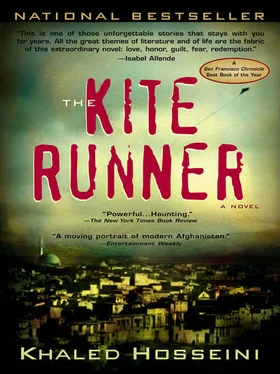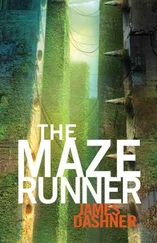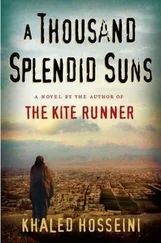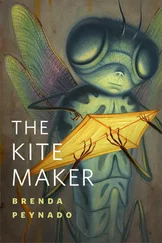I slipped the picture back where I had found it. Then I realized something: That last thought had brought no sting with it. Closing Sohrab’s door, I wondered if that was how forgiveness budded, not with the fanfare of epiphany, but with pain gathering its things, packing up, and slipping away unannounced in the middle of the night.
THE GENERAL AND KHALA JAMILA came over for dinner the following night. Khala Jamila, her hair cut short and a darker shade of red than usual, handed Soraya the plate of almond-topped maghout she had brought for dessert. She saw Sohrab and beamed. “ Mashallah ! Soraya jan told us how khoshteep you were, but you are even more handsome in person, Sohrab jan.” She handed him a blue turtleneck sweater. “I knitted this for you,” she said. “For next winter. Inshallah , it will fit you.”
Sohrab took the sweater from her.
“Hello, young man,” was all the general said, leaning with both hands on his cane, looking at Sohrab the way one might study a bizarre decorative item at someone’s house.
I answered, and answered again, Khala Jamila’s questions about my injuries – I’d asked Soraya to tell them I had been mugged – reassuring her that I had no permanent damage, that the wires would come out in a few weeks so I’d be able to eat her cooking again, that, yes, I would try rubbing rhubarb juice and sugar on my scars to make them fade faster.
The general and I sat in the living room and sipped wine while Soraya and her mother set the table. I told him about Kabul and the Taliban. He listened and nodded, his cane on his lap, and tsk ’ed when I told him of the man I had spotted selling his artificial leg. I made no mention of the executions at Ghazi Stadium and Assef. He asked about Rahim Khan, whom he said he had met in Kabul a few times, and shook his head solemnly when I told him of Rahim Khan’s illness. But as we spoke, I caught his eyes drifting again and again to Sohrab sleeping on the couch. As if we were skirting around the edge of what he really wanted to know.
The skirting finally came to an end over dinner when the general put down his fork and said, “So, Amir jan, you’re going to tell us why you have brought back this boy with you?”
“Iqbal jan! What sort of question is that?” Khala Jamila said.
“While you’re busy knitting sweaters, my dear, I have to deal with the community’s perception of our family. People will ask. They will want to know why there is a Hazara boy living with our daughter. What do I tell them?”
Soraya dropped her spoon. Turned on her father. “You can tell them-”
“It’s okay, Soraya,” I said, taking her hand. “It’s okay. General Sahib is quite right. People will ask.”
“Amir-” she began.
“It’s all right.” I turned to the general. “You see, General Sahib, my father slept with his servant’s wife. She bore him a son named Hassan. Hassan is dead now. That boy sleeping on the couch is Hassan’s son. He’s my nephew. That’s what you tell people when they ask.”
They were all staring at me.
“And one more thing, General Sahib,” I said. “You will never again refer to him as ‘Hazara boy’ in my presence. He has a name and it’s Sohrab.”
No one said anything for the remainder of the meal.
IT WOULD BE ERRONEOUS to say Sohrab was quiet. Quiet is peace. Tranquillity. Quiet is turning down the VOLUME knob on life.
Silence is pushing the OFF button. Shutting it down. All of it.
Sohrab’s silence wasn’t the self-imposed silence of those with convictions, of protesters who seek to speak their cause by not speaking at all. It was the silence of one who has taken cover in a dark place, curled up all the edges and tucked them under.
He didn’t so much live with us as occupy space. And precious little of it. Sometimes, at the market, or in the park, I’d notice how other people hardly seemed to even see him, like he wasn’t there at all. I’d look up from a book and realize Sohrab had entered the room, had sat across from me, and I hadn’t noticed. He walked like he was afraid to leave behind footprints. He moved as if not to stir the air around him. Mostly, he slept.
Sohrab’s silence was hard on Soraya too. Over that long-distance line to Pakistan, Soraya had told me about the things she was planning for Sohrab. Swimming classes. Soccer. Bowling league. Now she’d walk past Sohrab’s room and catch a glimpse of books sitting unopened in the wicker basket, the growth chart unmarked, the jigsaw puzzle unassembled, each item a reminder of a life that could have been. A reminder of a dream that was wilting even as it was budding. But she hadn’t been alone. I’d had my own dreams for Sohrab.
While Sohrab was silent, the world was not. One Tuesday morning last September, the Twin Towers came crumbling down and, overnight, the world changed. The American flag suddenly appeared everywhere, on the antennae of yellow cabs weaving around traffic, on the lapels of pedestrians walking the sidewalks in a steady stream, even on the grimy caps of San Francisco’s panhandlers sitting beneath the awnings of small art galleries and open-fronted shops. One day I passed Edith, the homeless woman who plays the accordion every day on the corner of Sutter and Stockton, and spotted an American flag sticker on the accordion case at her feet.
Soon after the attacks, America bombed Afghanistan, the Northern Alliance moved in, and the Taliban scurried like rats into the caves. Suddenly, people were standing in grocery store lines and talking about the cities of my childhood, Kandahar, Herat, Mazar-i-Sharif. When I was very little, Baba took Hassan and me to Kunduz. I don’t remember much about the trip, except sitting in the shade of an acacia tree with Baba and Hassan, taking turns sipping fresh watermelon juice from a clay pot and seeing who could spit the seeds farther. Now Dan Rather, Tom Brokaw, and people sipping lattes at Starbucks were talking about the battle for Kunduz, the Taliban’s last stronghold in the north. That December, Pashtuns, Tajiks, Uzbeks, and Hazaras gathered in Bonn and, under the watchful eye of the UN, began the process that might someday end over twenty years of unhappiness in their watan . Hamid Karzai’s caracul hat and green chapan became famous.
Sohrab sleepwalked through it all.
Soraya and I became involved in Afghan projects, as much out of a sense of civil duty as the need for something – anything – to fill the silence upstairs, the silence that sucked everything in like a black hole. I had never been the active type before, but when a man named Kabir, a former Afghan ambassador to Sofia, called and asked if I wanted to help him with a hospital project, I said yes. The small hospital had stood near the Afghan-Pakistani border and had a small surgical unit that treated Afghan refugees with land mine injuries. But it had closed down due to a lack of funds. I became the project manager, Soraya my comanager. I spent most of my days in the study, e-mailing people around the world, applying for grants, organizing fund-raising events. And telling myself that bringing Sohrab here had been the right thing to do.
The year ended with Soraya and me on the couch, blanket spread over our legs, watching Dick Clark on TV. People cheered and kissed when the silver ball dropped, and confetti whitened the screen. In our house, the new year began much the same way the last one had ended. In silence.
THEN, FOUR DAYS AGO, on a cool rainy day in March 2002, a small, wondrous thing happened.
I took Soraya, Khala Jamila, and Sohrab to a gathering of Afghans at Lake Elizabeth Park in Fremont. The general had finally been summoned to Afghanistan the month before for a ministry position, and had flown there two weeks earlier – he had left behind his gray suit and pocket watch. The plan was for Khala Jamila to join him in a few months once he had settled. She missed him terribly – and worried about his health there – and we had insisted she stay with us for a while.
Читать дальше












